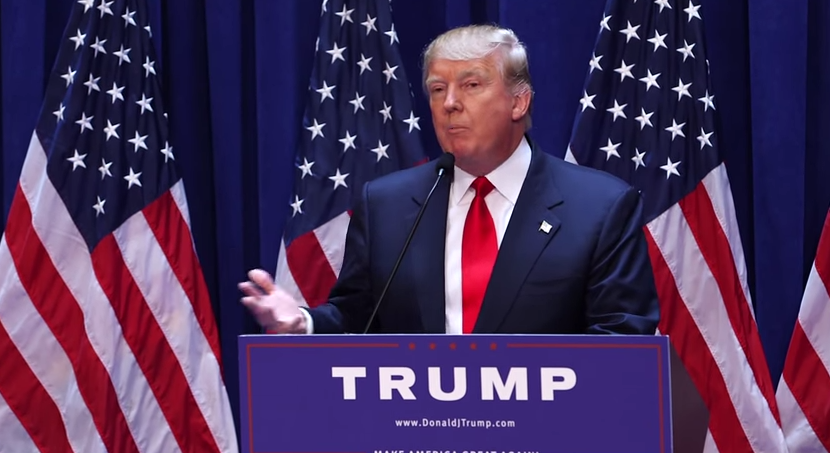I had an older professor in Bible college who was responsible for teaching survey courses through the Old Testament. You don’t have to be a seminary veteran to imagine where such classes usually reside on the “Most Thrilling Lectures” chart. My professor knew this, and so enjoyed bringing his sleepy classes back to life with one-liners. My favorite was one that he apparently used every year: “Most Bible college students don’t give a damn about reading the Bible. You know how I know this? Because right now, most of this class is more offended at the word I just used than what I said about them.”
I love that line, and here’s one reason (among several): It illustrates the reliably true principle that when given the choice whether to take offense at the truly offensive or at the meaninglessly offensive, people tend to choose the latter. My professor’s barb came from experience with students who, while careful to voice objection to every salty word or off-color story, never thought to protest or argue generalizations like that one. What those students chose to take offense at demonstrated what they valued, and in that case, it wasn’t the right thing.
Yesterday, Ross Douthat published a brief commentary on the Charlie Hebdo murders. Douthat considered some principles about the logic and propriety of religious blasphemy in a democratic society and concluded that media criticism of Charlie Hebdo for inflammatory content misses the point:
In this sense, many of the Western voices criticizing the editors of Hebdo have had things exactly backward…they’ve criticized the paper for provoking violence by being needlessly offensive and “inflammatory” (Jay Carney’s phrase), when the reality is that it’s precisely the violence that justifies the inflammatory content. In a different context, a context where the cartoons and other provocations only inspired angry press releases and furious blog comments, I might sympathize with the FT’s Tony Barber when he writes that publications like Hebdo “purport to strike a blow for freedom when they provoke Muslims, but are actually just being stupid.” …But if publishing something might get you slaughtered and you publish it anyway, by definition you are striking a blow for freedom, and that’s precisely the context when you need your fellow citizens to set aside their squeamishness and rise to your defense.
I think Douthat is (once again) on point here. Let’s imagine that on Tuesday morning I was familiar with Charlie Hebdo (I wasn’t) and disapproved of their crude caricatures and mockery. If you asked me, I would probably say that such content is bad taste and strangles the climate of mutual respect that is crucial for pluralistic societies. What I wouldn’t have said on Tuesday is that the magazine is recklessly endangering the lives of its employees. That possibility would have never occurred to me, at least realistically, because France, like the United States, has a free press, and countries with a free press do not instinctively brace for terrorism and mass homicide whenever a publication offends someone. Terrorism is terror precisely because it is unforeseeable and incompatible with how we think about life with freedom.
Assuming I’m reading Douthat correctly, he is insisting that this instinct of nonviolence, this assumption that a free press will not be met with domestic terrorism, is as important to preserve for liberty as the free press itself. It is one thing to have been offended at Charlie Hebdo’s cartoons (as many reasonable people probably were/are); it is quite another to imply that the magazine, and France for that matter, should have known that blasphemy + offense —> murder. The moment that a civilization accepts that logic, freedom has taken a step towards the door. If the presence of irreverent establishments like Charlie Hebdo strengthens a culture’s conviction that thought is absolutely free and violent reactions to it are not only illegal but alien to the social contract, then those establishments must be publicly affirmed.
In a brief Twitter exchange with Douthat, my friend Matthew Anderson expressed doubts that a Christian could say from conviction that religious blasphemy is ever “necessary,” since it’s not something a Christian could ever in good conscience actually do.
@DouthatNYT @michaelbd I think this puts the dilemma very clearly, Ross. It also makes me think that your "needs to be said" line simply…
— Matthew Lee Anderson (@mattleeanderson) January 8, 2015
@DouthatNYT @michaelbd can't be held by the Christian. It asks non-Christians to martyr themselves for liberalism while we enjoy its fruits.
— Matthew Lee Anderson (@mattleeanderson) January 8, 2015
I think what Matthew is getting at is that it does the convictional Christian no good to believe that 1) blasphemy (or more accurately, unbelief) really does have an eternal consequence on human beings, while nonetheless claiming that 2) a free society should encourage blasphemy and go out of its way to support those who do it. This seems to depict non-Christians as human shields for Christians in the sociopolitical arena, as if the state should subsidize damnation to fund religious liberty.
But is that really a logical implication of Douthat’s point? I don’t think so. Two reasons:
1) This is really not a unique or novel dilemma for Christians. Whether we’re talking about the Roman Empire, Puritan New England or 21st century France, Christians are and will continue to be unable to escape the grace/nature tradeoffs that come from membership in anything other than a Christian theocracy. In many cases it’s a matter of the lesser of two evils. That happens to be my perspective on, for example, sodomy laws. Though I’m a Christian with historic and orthodox beliefs about homosexuality’s sinfulness–and about the fate of all who do not repent of sin turn to Jesus Christ–I don’t support the state-sponsored outlawing of homosexuality, because I believe the cost of surrendering that kind of sexual fiat to human government presents another frightening problem without actually fixing the first problem. Likewise, I’m comfortable with a culture that offers legal protection to blasphemy, not because I desire to see people mock God but because I don’t desire to see sinful human government be given the keys to the kingdom.
2) In the case of offensive religious speech like that of Charlie Hebdo, I think, theologically, that we are not yet offended at what should offend us. Ask yourself which is more offensive: To draw a cartoon depicting Mohammed in an irreverent or even gross way, or, to believe and speak and write that Islam is a false religion which leads people to eternal death? True, the first might be done with less taste and tact, but ultimately, only one of those “blasphemies” actually says anything negative about the religion of Islam. Yet Christianity not only condones that blasphemy, it actually teaches it as a fundamental tenet of faith. Asking whether blasphemy is necessary is in the end the same question as, “Is it necessary that Christian conviction about truth be allowed in the public square?”
The Christian response to Islam is not war but evangelism. Religious blasphemy is necessary not because it is inherently good but because its legal protection means the protection of the Christian message, which is unalterably blasphemous towards all worldviews that deny the supremacy and divinity of Jesus Christ. What Wednesday’s terrorism targeted was more than caricatures of Islam, it was the very existence of the Gospel and the Gospel’s messengers. One of the great blessings of history has been political liberty that allows for the transmission of religion and religion’s blasphemies. That liberty is valuable to the Christian not because it makes fun of Islam but because it escorts the proclamation of the Church.












